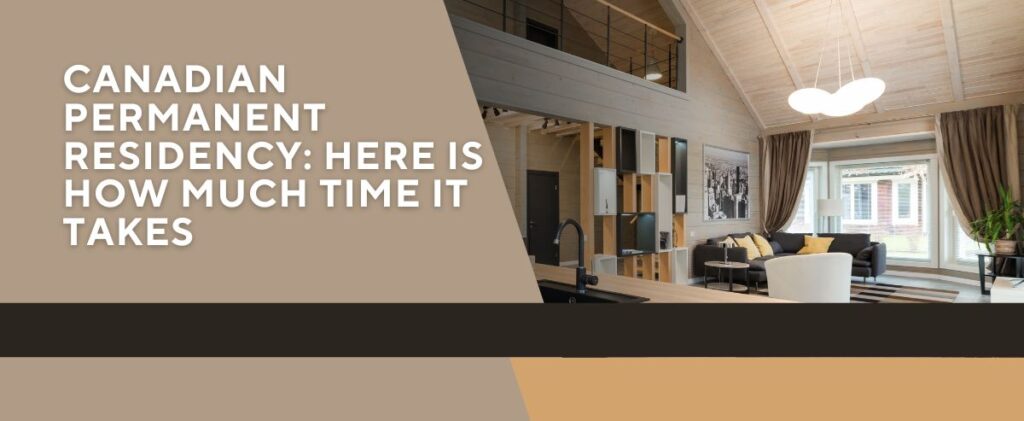Getting a Canadian Permanent Residency (PR) is a dream for many individuals seeking to build a new life and make Canada their permanent home. However, the journey to obtaining a Permanent Residency can vary in length and complexity.
How long will it take to get a Permanent Residency? In this article, we will go through the breakdown of the timelines for various pathways to Canadian PR, making it easier to understand.
Understanding Permanent Residency
Becoming a permanent resident is a significant milestone for those seeking to establish roots in a welcoming and diverse country. Understanding the concept of PR is crucial for navigating the immigration process effectively.
- Permanent Residency grants individuals the right to live, work, and study anywhere in Canada indefinitely.
- It is a pathway to Canadian citizenship and offers access to essential services such as healthcare and social benefits.
- Various pathways exist to obtain a Permanent Residency; the most common are the Express Entry system, Provincial Nominee Programs (PNPs), family sponsorship, and the Atlantic Immigration Pilot Program (AIPP).
- Each pathway has its eligibility criteria and processing times, influencing the timeline to Permanent Residency.
- Prospective immigrants should carefully assess their eligibility and explore the requirements of each pathway before proceeding with their application.
Understanding PR is essential for individuals aspiring to make Canada their home and become permanent residents.
By familiarizing themselves with the available pathways and requirements, prospective immigrants can navigate the immigration process with confidence and work towards achieving their goal of becoming Canadian permanent residents.
How long will it take to become a permanent resident of Canada in 2024?
The time to obtain or become a permanent resident in Canada varies based on the chosen pathway. Overall, it can take anywhere from a few months to several years.
Through Express Entry, some applicants may receive invitations within a few weeks, while others may have to wait several months. Processing times for provincial nominee programs and family sponsorship also fluctuate.
Here are the timelines for each permanent residency pathway, per the IRCC processing times.
Current Processing Times
Below are the prevailing processing times for various PR programs.
Economic Immigration Programs
| Application Type | Current Processing Time |
| Canadian Experience Class (CEC) | 5 months |
| Federal Skilled Worker Program (FSWP) | 5 months |
| Federal Skilled Trades Program (FSTP) | (not updated by IRCC since March 1 as there could be no application in processing for FSTP as of now.) |
| Provincial Nominee Program (PNP) via Express Entry | 6 months |
| Non-Express Entry PNP | 11 months |
| Quebec Skilled Workers (QSW) | 9 months |
| Quebec Business Class entrepreneurs (Quebec), investors (Quebec), self-employed persons (Quebec) | 54 months |
| Federal Self-Employed | 52 months |
| Atlantic Immigration Program (AIP) | 6 months |
| Start-Up Visa | 37 months |
Family Sponsorships
| Application Type | Current Processing Time |
| Spouse or common-law partner living outside Canada (intention to live outside Quebec) | 13 months |
| Spouse or common-law partner living outside Canada (intention to live in Quebec) | 34 months |
| Spouse or common-law partner living inside Canada (intention to live outside Quebec) | 11 months |
| Spouse or common-law partner living inside Canada (intention to live in Quebec) | 27 months |
| Parents or Grandparents PR (intention to live outside Quebec) | 20 months |
| Parents or Grandparents PR (intention to live in Quebec) | 33 months |
Is it easier to get a Permanent Residency in Canada?
The time it takes to become a Canadian permanent resident can vary depending on your chosen pathway, your circumstances, and how efficient the immigration process is. While some people get PR quickly, others might have to wait longer.
It’s essential to understand the requirements and processes of your chosen pathway and stay updated on any changes to Canada’s immigration policies. With patience and planning, achieving PR in Canada is possible for many people looking for a fresh start in this welcoming country.
What is Permanent Residency in Canada?
PR allows individuals to live, work, and study anywhere in Canada permanently, offering access to essential services and a pathway to citizenship.
Can I work in Canada while applying for Permanent Residency?
Yes, you can work in Canada while your permanent residency application is being processed on a bridging open work permit, depending on your current immigration status and the work permit.
What are the eligibility criteria for Permanent Residency?
Eligibility varies based on the chosen pathway but typically includes factors like education, work experience, language proficiency, and ties to Canada through family or employment.
For family sponsorship, there is no need for any education, experience, or language proficiency. Applicants only need to prove the genuineness of their relationship with a Canadian permanent resident or citizen.








